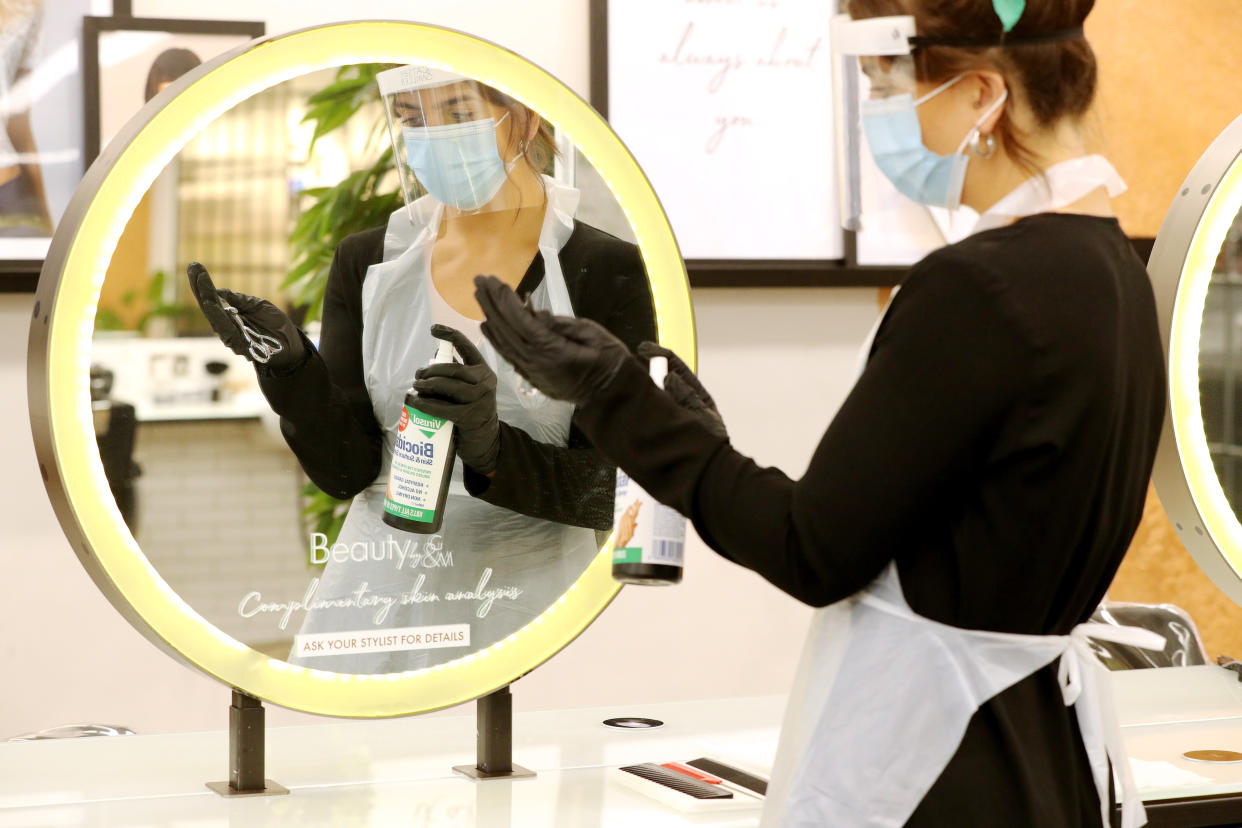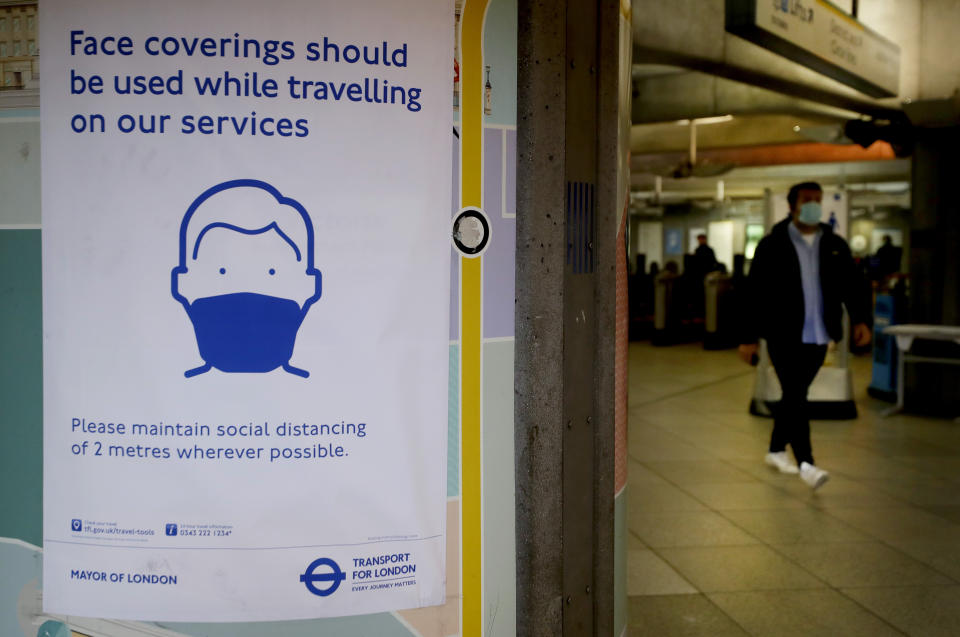Coronavirus daily death toll may fall to zero by July, say scientists

The daily death toll from coronavirus could drop to zero by July, scientists have predicted.
Researchers at the University of Oxford say COVID-19 deaths could stop being reported by the end of this month.
Professor Carl Heneghan, director of the university’s Centre for Evidence-Based Medicine (CEBM), said the zero landmark will be reached at the end of June if trends continue.
Last month, Prof Heneghan forecast there would be no coronavirus deaths on several days in June.
On Monday, the government said there were 55 more reported COVID-19 deaths, bringing the total death toll to 40,597, the lowest daily tally since 22 March.
However, figures released on a Monday tend to be lower because of a lag in reporting, while the government’s total does not include all deaths across the UK.
Data published by the CEBM on Monday showed that 13% of hospital trusts in England had reported no COVID-19 deaths in the past seven days. In addition, 60% of trusts reported no deaths in the previous 48 hours.
Researchers also said that in one in five (21%) hospital trusts, no COVID-19 deaths had occurred in the past seven days.
“The trend in the data is looking reassuring and there’s no reason it shouldn’t continue,” Prof Heneghan told The Times.
Watch the video below
“By the end of the month we could be in a position where we are observing no deaths.”
Prof Heneghan said the daily death toll was decreasing along with infection rates and coronavirus-related phone calls to 111 and 999.
He did not rule out a “seasonal element” to COVID-19 that means there are fewer cases in the summer.
“Community transmission is low, admissions to hospitals are very low,” he said.
“We’ve been opening up society and it is reassuring that we’re going in the right direction.”

Last month, Prof Heneghan and his team urged the government to lift the coronavirus lockdown because there was “no other alternative” in order to “start the engine of society again”.
In April, he warned that the damage done by the lockdown could “outweigh that of coronavirus”.
On Tuesday, the Office for National Statistics (ONS) reported that, of all deaths involving COVID-19 in England and Wales registered up to 29 May, 64% (29,227 deaths) occurred in hospital. A further 29% (13,460 deaths) took place in care homes.
Of the deaths registered in the week up to 29 May, 1,822 mentioned “novel coronavirus (COVID-19)” on the death certificate, the lowest number of deaths involving COVID-19 in the last eight weeks.
Coronavirus: what happened today
Click here to sign up to the latest news, advice and information with our daily Catch-up newsletter
Read more about COVID-19
How to get a coronavirus test if you have symptoms
How easing of lockdown rules affects you
In pictures: How UK school classrooms could look in new normal
How public transport could look after lockdown
How our public spaces will change in the future
Help and advice
Read the full list of official FAQs here
10 tips from the NHS to help deal with anxiety
What to do if you think you have symptoms
How to get help if you've been furloughed



